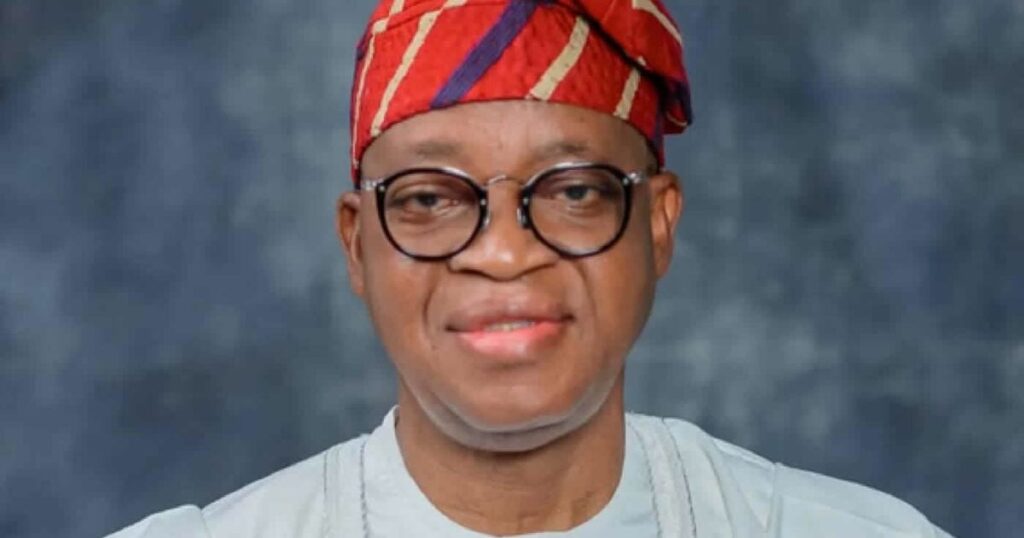The Federal Ministry of Marine and Blue Economy has stated that the Lagos ports modernisation project is a necessary intervention given the age and scale of trade handled through Apapa and Tin Can Island Ports.
This is even as the ministry stated that modernisation of Lagos Ports is by no means the sole focus of the Federal Government’s maritime infrastructure drive.
The Special Adviser to the Minister of Marine and Blue Economy, Dr Bolaji Akinola, disclosed this in a statement on Tuesday.
The statement also faulted the recent remarks made by former Anambra State Governor, Mr Peter Obi, regarding the Federal Government’s approval of the $1bn modernisation of the Apapa and Tin Can Island Ports in Lagos.
Recall that a few days ago, Peter Obi via his verified X account, @PeterObi, said that technology in the nation’s maritime sector must be guided by transparency and equity for all Nigerians.
His post read in part, “I have noted the Federal Government’s recent approval of $1bn (N1.5tn) for the modernisation of the Apapa and Tin Can Island Ports in Lagos. While any effort to improve efficiency and embrace technology in our maritime sector is commendable, such an initiative must be guided by accountability, transparency, and equity for all Nigerians. However, this development once again exposes a longstanding concentration of our port development only in Lagos. Nigeria’s infrastructure investment remains excessively concentrated in Lagos, often at the expense of other strategic ports such as Warri, Port Harcourt, Calabar, and Onne. If fully developed, these ports could enhance productivity, drive trade, create jobs, and open new economic corridors that would lift millions out of poverty across the federation. Around the world, countries that have decentralised port development are reaping immense economic benefits,”
Akinola further explained that while the Ministry welcomes constructive dialogue on national development, “It is important to correct the misleading impression created by Mr Obi’s comments.”
“The Lagos Ports modernisation project is a necessary intervention given the age and scale of trade handled through Apapa and Tin Can Island. However, it is by no means the sole focus of the Federal Government’s maritime infrastructure drive. The Ministry’s ongoing efforts to upgrade, modernise, and expand other ports outside Lagos clearly affirm a nationwide commitment to developing the marine and blue economy in an equitable, sustainable, and forward-looking manner,” Akinola explained.
He emphasised that the Minister of Marine and Blue Economy, Adegboyega Oyetola, has consistently stated at various fora that the Federal Government is modernising and upgrading the nation’s ports in a comprehensive and inclusive manner and not concentrating efforts solely in Lagos.
According to him, the Ministry has already commenced the procurement process for the renovation and modernisation of the ports in Warri, Port Harcourt, Calabar, and Onne. “These projects are being undertaken alongside the Lagos port modernisation initiative, forming part of a coordinated national strategy to revitalise and expand maritime infrastructure across all regions of the country.”
He mentioned that in addition to these ongoing interventions, the Federal Ministry of Marine and Blue Economy is working closely with the respective state governments and private investors to develop new deep seaports that will further strengthen the nation’s maritime capacity.
“These include the Agge Deep Seaport in Bayelsa State, the Ibom Deep Seaport in Akwa Ibom State, the Bonny Deep Seaport in Rivers State, and a deep seaport in Cross River State. Each of these projects reflects the ministry’s commitment to balanced development and regional economic inclusion within the framework of the national blue economy,” he stated.
Akinola highlighted that the Onitsha River Port in Anambra State, developed by the National Inland Waterways Authority, an agency under the ministry, stands as a practical example of the Federal Government’s efforts to decentralise port operations and expand maritime access beyond Lagos.
He maintained that these initiatives demonstrate a deliberate and strategic approach to strengthening Nigeria’s port network, improving logistics efficiency, and stimulating industrial and commercial growth across the federation.
“The Federal Ministry of Marine and Blue Economy therefore wishes to state unequivocally that Mr Peter Obi’s claim suggesting neglect of ports outside Lagos is incorrect and misleading. The Federal Government’s policies and actions clearly demonstrate a balanced and inclusive approach to port development, guided by President Tinubu’s Renewed Hope Agenda, which seeks to promote national food security, economic diversification, and regional prosperity through the full harnessing of Nigeria’s maritime potential,” he said.
He stressed that the Ministry remains committed to transparent, accountable, and equitable maritime governance, and assures Nigerians that ongoing reforms will ensure every region of the country benefits from the opportunities inherent in the nation’s growing blue economy.















